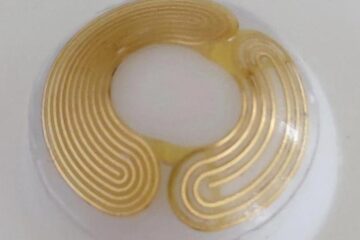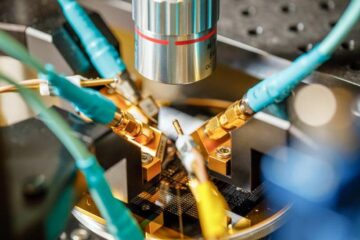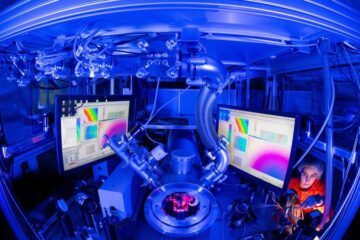Tardigrades from Sweden first animal in open space conditions

And the few groups of animals that have the potential to get through a space journey alive will constitute a key source of knowledge when the time comes to create ecosystems in space.
“For the first time ever, animals are now being exposed to an unmitigated space environment, with both vacuum conditions and cosmic radiation,” says the ecologist Ingemar Jönsson, a researcher at Kristianstad University in Sweden.
One of the aims of sending the tiny tardigrades into space is to find out whether they can cope with the rugged conditions in space, which has previously been predicted but never tested.
Tardigrades are one of the most tolerant animals on earth when it comes to dehydration and radiation, a characteristic that would be required in order to survive a trip through space. But the project is also part of research into the fundamental physiology of the tardigrade, primarily of the mechanisms that underlie their ability to withstand desiccation.
The project, named TARDIS, has been selected by the European Space Agency (ESA) to be one of ten European projects being given the opportunity to carry out scientific experiments in a true space environment.
Ingemar Jönsson, who is participating in the space project together with two German biologists and a radiation biologist in Stockholm, will then examine the returning tardigrades in great detail. Among other things, he will determine whether they still have the capacity to reproduce, and whether there has been any damage to their genes.
Follow the tardigrades' space journey and Ingemar Jönsson's continued research work at: http://tardigradesinspace.blogspot.com/
The satellite that will be transporting TARDIS through space until September 26 can be seen on the Web. The position of the FOTON-M3 satellite can be monitored in real time on the following Web site: http://www.n2yo.com/?s=32058
Read more about the FOTON-M3 satellite at:
http://www.esa.int/esaCP/SEMQDB13J6F_index_0.html
More information:
Project leader K. Ingemar Jönsson, researcher at the Department of Mathematics and Science, Kristianstad University. Phone: +46 (0)44 203 429, e-mail: ingemar.jonsson@hkr.se
Pressofficer Lisa Nordenhem; lisa.nordenhem@info.hkr.se; +46-703 176 578
Media Contact
All latest news from the category: Ecology, The Environment and Conservation
This complex theme deals primarily with interactions between organisms and the environmental factors that impact them, but to a greater extent between individual inanimate environmental factors.
innovations-report offers informative reports and articles on topics such as climate protection, landscape conservation, ecological systems, wildlife and nature parks and ecosystem efficiency and balance.
Newest articles

‘Smart’ contact lenses could someday enable wireless glaucoma detection
Most people with early-stage glaucoma don’t know they have it, even though early treatment is key to reducing vision loss. While detecting a subtle increase in eye pressure helps doctors…

New tech may lead to smaller, more powerful wireless devices
Good vibrations… What if your earbuds could do everything your smartphone can do already, except better? What sounds a bit like science fiction may actually not be so far off….

Caution, hot surface!
An international research team from the University of Jena and the Helmholtz Institute Jena are demystifying the mechanisms by which high-intensity laser pulses produce plasma on the surface of solids….





















